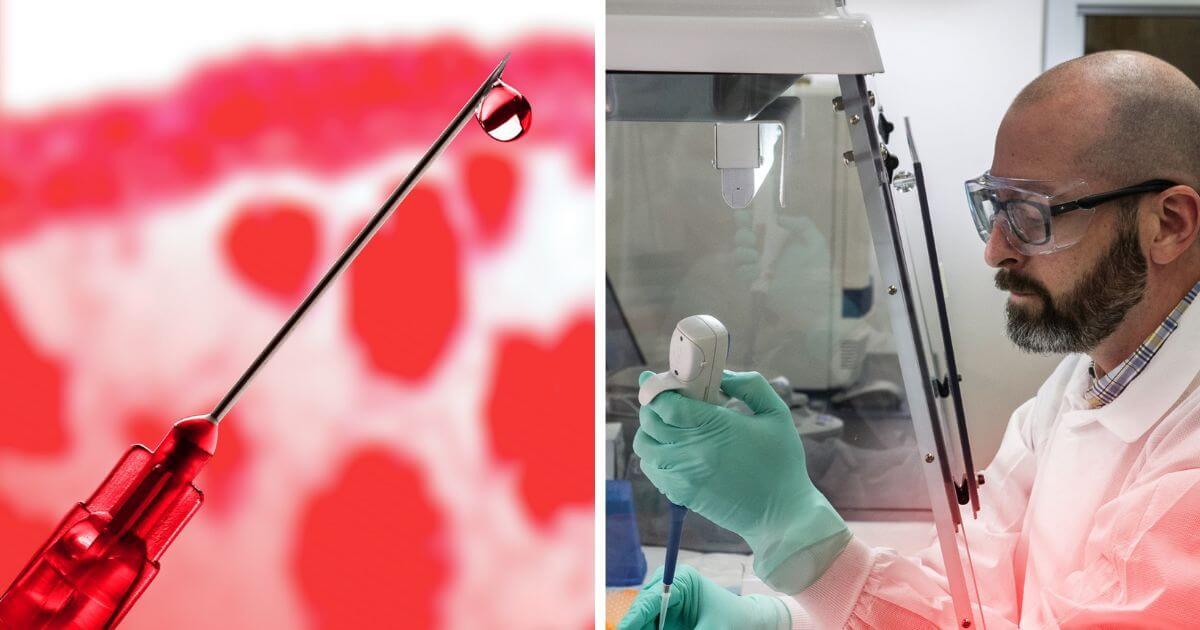The results of a major consultation undertaken by the Human Fertilisation and Embryology Authority (HFEA) reveal that 97% of the general public who responded to proposals in the consultation for a law change, that would pave the way for removing the 14-day limit for experimenting on human embryos, oppose such changes to legislation.
Despite overwhelming opposition to this change in the law revealed earlier this week, the taxpayer-funded HFEA has ignored the results of its own consultation and proceeded to lobby the Government to go ahead with its plans, which include changes to legislation to pave the way for removing the 14-day limit for experimentation on human embryos (proposal 15).
Plans to remove the 14-day limit
As part of the consultation, the HFEA (page 26) outlined its desire to “future proof” the Human, Fertilisation and Embryology Act to allow it to be more easily modified to permit changes, such as increasing or removing the 14-day limit, via secondary legislation rather than changes to primary legislation.
This would see future changes to embryology laws being demoted to secondary legislation, where scrutiny would be reduced, rather than being introduced through primary legislation, where ethical considerations can be rigorously discussed in Parliament and MPs held accountable.
In the preamble to this question, the HFEA outlined the desirability of doubling the existing 14-day age limit during which research on human embryos is currently permitted. This would allow research on embryos who are four weeks old.
4,563 members of the general public responded to this question, of whom 4,429 (97%) opposed making this change to the law (Reference response data – ‘Figure 19’ tab). A number of special interest groups and individuals also responded to the consultation, and with these included, there was still overwhelming opposition to changing the law. Including these special interest responses, 5,345 of the submissions responded to this question, of which an overwhelming majority (85% – 4,520) opposed a law change.
Opposition to other proposals
The results also showed that 96% (4,770 of 4,958) of the general public who responded to the question in the consultation (page 22) on whether ‘embryo banking’ should be allowed oppose allowing this to happen in the UK (Reference response data – ‘Figure 17’ tab).
Article 18 of the Council of Europe Convention on Human Rights and Biomedicine prohibits “the creation of human embryos for research purposes”. At present such research is permitted in the UK – but only when consent has been given for the use of embryos for specific named projects. ‘Embryo banking’ would allow embryos to be donated to a research bank to store embryos for future use. This is likely to increase the perception of human embryos as disposable and incentivise further creation of embryos who are unlikely ever to be born.
Similarly, the results showed that 97% (4,643 of 4,779) of the general public who responded to the question in the consultation (page 24) concerning a loosening of the safeguards that currently exist around experiments oppose this proposal (Reference response data – ‘Figure 18’ tab).
HFEA ignores responses to its own consultation and lobbies Government for change
Despite the overwhelming opposition to these changes, the HFEA has ignored the results of its own consultation and has since issued a press release and list of proposals for change, which include changes to legislation to pave the way for removing the 14-day limit for experimenting on human embryos (proposal 15).
The taxpayer-funded body has also ignored overwhelming opposition to allowing ‘embryo banking’ and the loosening of safeguards that are currently in place around experiments with embryos (proposals 13 and 14).
Removing the 14-day limit on experimenting on embryos
Earlier this year, the Human Fertilisation and Embryology Authority (HFEA) undertook a review of the “law on fertility treatment regulation and embryo research”. As part of its review, the HFEA launched a consultation in which it made a “case for change” to current laws, seeking to extend its powers and expand research using human embryos. This could result in the greatest changes to the law concerning the use of embryos since the 2008 Human Fertilisation and Embryology Act that allowed the creation of human-animal hybrid embryos and ‘saviour siblings’.
Currently, the Human Fertilisation and Embryology Act limits the use of human embryos in research to 14 days or the appearance of a primitive streak (if earlier). In the consultation, the HFEA makes the case for removing the 14-day limit from current legislation, outlining the desirability of doubling the existing 14-day age limit during which research on human embryos is permitted. This would allow research on embryos that are four weeks old.
While in the past it was not technically feasible to culture human embryos beyond formation of a primitive streak or 14 days post-fertilisation, culture systems have evolved, now introducing this possibility. Many countries such as Germany, Italy and Austria do not allow embryo research at all.
At around 22 days, the central nervous system begins to form and by 28 days, the heart has begun to beat, the brain has begun to develop and a baby’s eyes, ears and nose have started to emerge.
All major parties supported having a 14-day limit
The 14-day limit has been a globally recognised standard of best practice and was upheld as a vital safeguard by each of the main UK political parties when the 2008 Human Fertilisation and Embryology Act was passed.
In the Parliamentary debate that preceded the Act becoming law in 2008, the Labour health secretary (Alan Johnson), Conservative shadow health secretary (Andrew Lansley), Liberal Democrat health spokesperson (Norman Lamb) and the Chair of the Health Select Committee (Kevin Barron) all referenced the 14-day limit as an important safeguard for embryo research.
Kevin Barron was even able to remark that “no one is suggesting that the 14-day limit on which we agreed in 1990 should be changed”. Significantly, Ken Clarke, who, as health secretary, had introduced the original Human Embryology and Fertilisation Act in 1990 that enshrined in law the 14-day limit, told the House of Commons “I believe that the judgement of 14 days or the emergence of the primitive streak has held up well for the past 18 years and we should stick to it”.
The importance of a 14-day limit was further underlined by Dawn Primarolo, a health minister, in her closing of the debate when she emphasised, with regard to human-animal embryos that were a central focus of the 2008 Bill, that “the Bill sets out strict prohibitions to guard against abuses. It makes it an offence to keep an admixed embryo beyond 14 days… Those are genuine safeguards”.
More recently, in 2017, Baroness Warnock, the Chair of the commission that set the original 14-day limit, warned of a slippery slope if the limit were to be removed.
Concerns about no time limit on experiments
As part of its case for making this change, the HFEA mentions that the International Society for Stem Cell Research recently proposed new guidelines to remove the 14-day limit on embryo research. These guidelines recommend removing the 14-day limit and do not mention any gestational limit for research on embryos.
Bioethicists, such as Stanford University Professor Hank Greely, are concerned that the guidelines include no such gestational limit. He commented “If you don’t have any endpoint, could you take embryos to 20 weeks? To 24 weeks? Is viability the only endpoint? Is viability even an endpoint?”
Concerns about HFEA independence and impartiality
The HFEA has previously been criticised regarding both its independence, as a regulator, and its impartiality in relation to the ethical standards it is obliged to uphold, which include Parliament’s insistence on the “special status” of the human embryo.
As far back as 2002, Suzi Leather, then Chair of the HFEA, told the US President’s Council on Bioethics in Washington D.C. that the HFEA committee would not include members who oppose human embryo research as their views “are out with the moral consensus in the UK”.
In 2005, the House of Commons Science and Technology Committee expressed “concerns… that the HFEA has been campaigning, corporately, for changes in legislation”. It explained, “We are concerned that the HFEA has crossed the boundary from regulation to advocacy”.
More recently, in December 2021, the current Chair of the HFEA, Julia Chain, promised “We need a modernised law and during my tenure as Chair, this will be one of my main priorities”, seemingly treating the HFEA as a vehicle for campaigning for legislative change.
The HFEA is a regulator set up to implement the law as passed by Parliament. Its responsibility is to regulate the law, not lobby to change it. Yet, in May 2022, in an interview with Peter Thompson, the chief executive of the HFEA, the Guardian reported that “the HFEA is seeking far-reaching changes” to the Human Fertilisation and Embryology Act. The Guardian even reported that the HFEA “is planning to propose draft legislation”.
Leading Canadian bioethicist Francoise Baylis criticised a previous HFEA consultation process for being “an exercise in strategic public relations”. This latest consultation adopted a similar approach, making the case for far-reaching changes without giving the other side of the argument and leaving the most controversial proposals to the end of its lengthy survey. Rather than offering protections for human embryos, whose special status is nowhere mentioned in the proposals, the consultation focuses instead on research and a desire for “innovation”.
Right To Life UK spokesperson, Catherine Robinson, said “The results of this consultation show that there is overwhelming opposition to making changes to legislation that would pave the way for removing the 14-day limit for experimenting on human embryos”.
“What we are talking about here is doing medical experiments on unique human embryos. Human embryos should never be experimented on, but it is even more disturbing to see the HFEA make the case for doing experiments on them even further into their development”.
“At around 22 days, the central nervous system has begun to form and by 28 days, the heart is beating, the brain has begun to develop and a baby’s eyes, ears and nose have started to emerge”.
“After undertaking a consultation that revealed overwhelming opposition to the changes it proposed, the HFEA has ignored the results of its own consultation and has since lobbied the Government to change legislation in order to pave the way for removing the 14-day limit for experimenting on human embryos”.
“We are calling on the Government to reject proposals to change the law that would pave the way for removing the 14-day limit for experimenting on human embryos”.
“We are also calling on the Government to launch an urgent inquiry into the HFEA, a taxpayer-funded body that is supposed to exist to regulate experimentation on embryos. Instead of doing its job, the HFEA appears to have taken on the role of a lobbyist for the industry it is meant to be regulating, by petitioning the Government to change laws that would enable the removal of the 14-day embryo experimentation limit, in defiance of public opposition”.











